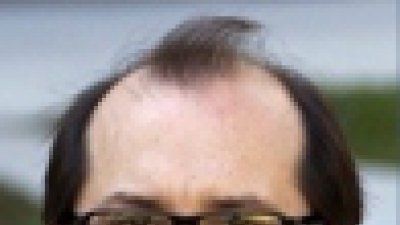University of California San Francisco
Give to UCSF-
-
A Glimpse Inside Construction of UCSF Medical Center at Mission Bay
<p>Construction of UCSF Medical Center at Mission Bay is well underway, with the building’s exterior panels, glass, and interior studs being installed.</p>

-
Media Advisory: UCSF Hosts Bone Marrow Transplant Reunion
To celebrate nearly a quarter-century of advances in hematology and transplantation, UCSF is holding a reunion of patients from the UCSF Medical Center who have undergone bone marrow transplants.

-
Cancer and Infertility: Dodging the 'Double Blow'
-
Compassionate Use Gives Lifeline to Needy Patients
-
'Thin Red Line' Around Breast Cancer
A pioneering approach to imaging breast cancer in mice has revealed new clues about why the human immune system often fails to attack tumors and keep cancer in check. This observation, by scientists at the University of California, San Francisco (UCSF), may help to reveal new approaches to cancer immunotherapy.

-
UCSF Team Reports on microRNA Knockout Mouse Resource
-
When to Get a Mammogram
-
Health, Prognosis Not Taken Into Account When Treating Older Lung Cancer Patients, Study Finds
In a study of patients 65 and older with non-small-cell lung cancer (NSCLC), younger patients were more likely to receive treatment than older patients, regardless of overall health and prognosis.

-
NCI Grant to Aid Oral Cancer Genomic Marker Research
-
Brain Surgery for Epilepsy Underutilized
Ten years ago, a landmark clinical trial in Canada demonstrated the unequivocal effectiveness of brain surgeries for treating uncontrolled epilepsy, but since then the procedure has not been widely adopted — in fact, it is dramatically underutilized according to a new UCSF study.

-
Media Advisory: Free Skin Cancer Screening at UCSF
In honor of National Skin Cancer Awareness Month, the UCSF Department of Dermatology is offering free skin cancer screenings. The event is co-sponsored by Assemblyman Tom Ammiano, and San Francisco Supervisor Christina Olague.

-
Warren Buffett, Prostate Cancer Patient: 'Excellent' Prognosis; a Reason to Screen?
-
Pricier Therapy No Better for Early Prostate Cancer
-
Brain Cancer Vaccine Shows Promise
A new brain cancer vaccine tailored to individual patients by using material from their own tumors has proven effective in a multicenter phase 2 clinical trial at extending their lives by several months or longer. The patients suffered from recurrent glioblastoma multiform — which kills thousands of Americans every year.

-
Knowledge Is Power
-
Son's Leukemia Sends Mom on Search for Donor
-
Most Young Women with Cancer Don't Try to Preserve Their Fertility
-
Surgical Alternative to Implants
-
UCSF's Frank McCormick Now Leads World's Largest Cancer Research Association
<p>Frank McCormick, director of the Helen Diller Family Comprehensive Cancer Center at UCSF and new president of the 35,000-member American Association of Cancer Research, discusses the state of cancer research.</p>

-
Integrative Medicine Classes Help Breast Cancer Survivors Recover
<p>Long considered a New Age way of meditating and exercising, yoga, qigong and tai chi have increasingly become popular among cancer patients who regain strength and balance after chemotherapy and surgery.</p>

-
Volunteer Teen Chefs Cater to Cancer Patients
-
Cancer Screening Stories Need to Report On the Uncertainties
-
Debate Grows Over Colorectal Cancer Screenings
-
Graduate Student to Receive Award from Fred Hutchinson Cancer Research Center
<p>Feng-Yen Li, a PhD candidate in biomedical sciences at UCSF, is among 13 graduate students from throughout North America chosen to receive the 2012 Harold M. Weintraub Graduate Student Award.</p>

-
Tonic Health Looks to 'Gamify' Dull Doctor Office Forms
-
Cancer Discovery
-
Cancer Therapy More Potent When It Hits Two Targets
Simultaneous targeting of two different molecules in cancer is an effective way to shrink tumors, block invasion, and stop metastasis, scientists at UCSF have found — work that may improve the effectiveness of combination treatments that include drugs like Avastin.

-
Integrative Care is Not Just a Hodge Podge, New Survey Finds
-
Cancer Research Shows Promise of New Drugs
Uncovering the network of genes regulated by a crucial molecule involved in cancer called mTOR, which controls protein production inside cells, researchers at UCSF have discovered how a protein “master regulator” goes awry, leading to metastasis, the fatal step of cancer.
